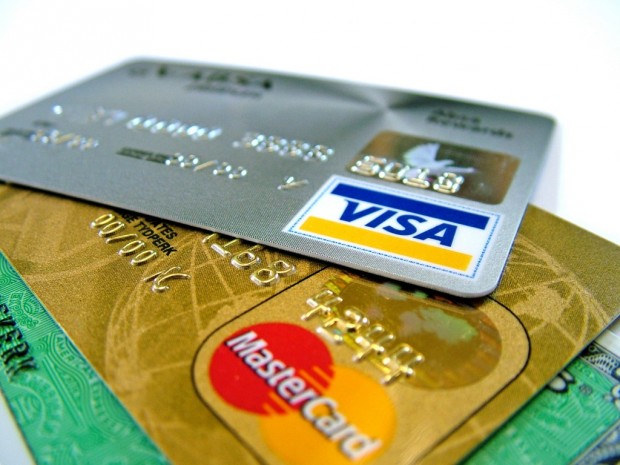Three causes there gained't be considered a 2021 housing industry crash

5 Things You Need to understand Before you apply for a Credit Card – Credit Sesame

There are lots of pros when it comes to obtaining a charge card: the ease of making purchases without carrying cash, the ability to build and maintain great credit so that you can borrow money in a cheaper rate, and the opportunity to accrue rewards that can then be sold for travel, or cash and more, for starters.

Get your free credit score-no charge card required!
Learn More!
Based upon the amount of solicitations you get within the mail (as well as the numerous eager salespeople looking to get you subscribe to a store card), it might appear like all bank wants to provide you with a charge card. But i am not saying that you ought to just subscribe to one without passing on much thought. After all, getting a bit of plastic is a huge responsibility.
Here's what you ought to know before applying for a credit card.
The Terms and Conditions
Details, rates, fees, rewards can vary greatly from card to card, so you've got to know what you're signing up for. This means reading the conditions and terms (or “pricing and terms,” etc., some issuers use different names when talking about the terms of the offer) be sure you are also reading the fine print. Make certain and be conscious of what your APR (apr) or what's commonly known as your rate of interest is – even if you never plan to have a revolving balance. This way, if tips over and also you aren't able to pay your bill entirely, you aren't shocked when you are getting hit with an intention charge of, say, a variable APR of 25.99 percent. It's also best to know if that rate of interest could increase should you miss a payment or make one late.
The Fees
Credit cards are notorious for having fees associated with them, but when you are a responsible user, having plastic won't set you back a leg along with a leg. Fundamental essentials most typical charges that you should be on the lookout for:
- Annual fee: In general, credit cards that offer rewards programs are the ones that levy an annual charge. (That's not always the case, however, and that's why it's important to read all the terms and any fine print.) When you may balk at paying it really to possess a charge card, it may be worth it when the rewards that you earn outweigh the annual fee; if not, choose a different card. In some situations, a card issuer may waive this fee for the newbie, or they might offer a $0 introductory annual fee for that first year, then following the first year they'll ask you for an annual fee.
- Late payment fee: Forgetting to pay your credit-card bill on time can have expensive consequences. While the cost varies from card to card, it's easy to avoid by enrolling in auto bill-pay or putting an alert on your calendar several days prior to the due date. Keep an eye on your credit card payment deadline, so should it change you may make any necessary alterations in any auto bill-pay or alerts you place up.
- Foreign transaction fee: Unless you've got a bit of plastic that's specifically geared towards international travelers, the chances are you'll be charged extra (usually Three or four percent of the transaction) like a foreign transaction fee of every transaction produced in a foreign currency or produced in U.S. Dollars that is processed away from United States.
- Cash advance fee: Wish to borrow cash against your line of credit? It is going to set you back – around Two to five percent from the advance – and that's along with any ATM fees you'll be charged too. Even more bad news? If you don't pay your balance in full, the interest charged on the cash advance portion is often significantly greater than that which you pay on purchases. And so they will begin charging interest on cash advances around the transaction date.
- Over-the-limit fee: This charge is fairly self-explanatory. Thanks to the CARD Act, you have to opt-in for the ability to make a purchase that exceeds your limit – an option that you shouldn't take advantage of. Take our word for it, having your card rejected is better than paying this fee.
The Perks
When you are looking at credit cards, you've countless options, including numerous ones that provide various rewards. If you're a globetrotter, you may want to think about a card where you earn miles or points that can be redeemed for travel-related rewards, like airline travel or hotel rooms here are a few options from your partners for airline and travel rewards. Or, if you are seeking flexibility, a card that provides cash-back or other rewards might be better for your spending habits – here is a choice of rewards cards from our partners.
Redeeming rewards aren't the only real perk you are able to search for. Perhaps, you are looking to benefit from the a low interest rate rate charge card, check out prepaid credit cards from our partners. For small business owners, there are business card printing that may offer incentives which may be worth a glance of your stuff.
The Capability to Qualify
You might not realize this, but simply since you receive something within the mail offering you a credit card does not mean you're automatically going to be approved to become a cardmember. In order to be approved for the card, issuers need you to meet certain qualifications – a part of which your credit must fall under an established range (think: “poor,” “average,” “good,” “excellent”) listed on the application. To know which range you fall into, you'll need to know your credit score, which you'll do free of charge at CreditSesame.com. For help on which classification your three-digit number falls into (and also the best cards for every category), click here. Your credit rating or range is not the only factor a card provider looks at when they review your application so bare this is mind.
If your score is gloomier than the card requires, you may not wish to bother submitting an application. Why? Applying for a credit card could cause your score to dip slightly, and if it’s already low, you wouldn't want it to fall anymore.
After all, one beneficial facet of having a credit card is building – not harming – your credit.





